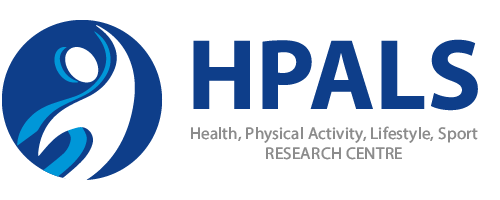Deaths due to non-communicable diseases (NCDs) such as diabetes and cardiovascular disease (CVD) are on the rise globally and expected to outnumber communicable disease deaths by five to one by 2060. In South Africa, NCDs affect more than 2 in every 5 adults, with more than 1 in every two adult women and 1 in every three men either overweight or obese. Nearly half of all adults do not meet public health recommendations for physical activity (PA). Physical inactivity in South Africa is one of the top 10 modifiable risk factors, and accounts for approximately 14% of all-cause mortality..
In the rapidly urbanizing, and highly unequal societies of LMICs such as South Africa, there is a case for colliding epidemics of chronic communicable and NCDs and the juxtaposition of obesity with food insecurity. Lack of safety from crime and traffic, poorly designed and often over-crowded urban environments, low prioritisation of physical education in schools, and inequitable distribution of urban green space, are endemic to these environments. While the co-benefits of addressing these concerns extend well beyond the boundaries of the health sector. We know that PA during childhood is essential for normal growth and development and that early life exposures may predispose individuals to later adult obesity. And we are aware of the transformative power of PA through sport, for cognitive, physical and social development, social cohesion, and gender equity.
In 2011, the United Nations High Level Summit on Non-communicable Diseases (NCDs) recognized the need for global, regional and national strategies for the prevention and management of the problems of inactivity and obesity, particularly in lower- and middle-income countries. There is a clear need to better understand the ecological, psychosocial, and bio-behavioural determinants of physical inactivity in South Africa, particularly, with respect to issues of social justice, the built and policy environments.
Our work in the area of physical activity and health extends from epidemiology related to the not only the prevalence of physical inactivity and the associated risks, but to the correlates and determinants of physical inactivity. Based on both the qualitative and quantitative formative research, we work to co-develop and evaluate physical activity-related, community, worksite, school-based and environmental interventions, designed to increase opportunities for safe and enjoyable physical activity. These interventions reach across the lifecourse, to persons of all abilities, with a focus on sustainability and scalability.
HPALS researchers regularly advise international organisations such as the World Health Organization, the Centers for Disease Control in the United States, the Active Healthy Kids Global Alliance and the International Olympic Committee, on policies, recommendations and guidelines related to physical activity and health. More locally, we work to mobilise and advocate to promote physical activity for health and development in the Sub-Saharan African region, and in South Africa.
